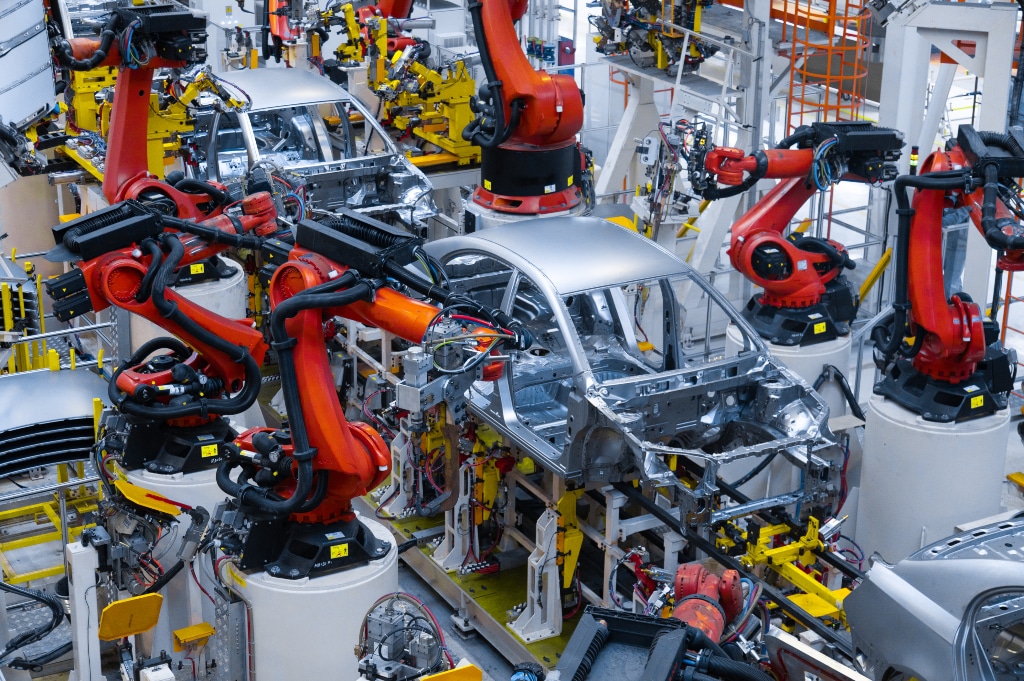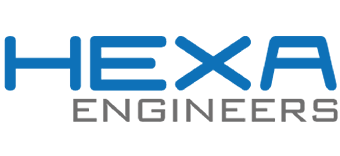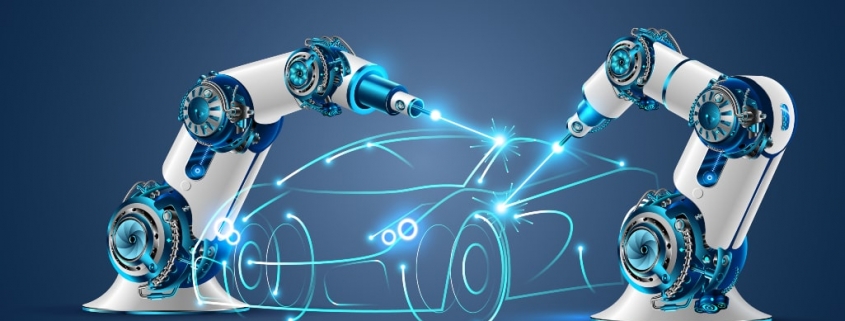Industry 4.0 in the automotive industry
The automotive industry was among the first to join Industry 4.0. But even so, around three-quarters of the companies in this industry have yet to take this step, so there is still a lot to do. Cybersecurity, the cloud or Big Data are aspects that are becoming more prevalent in an industry that has to provide service to a user seeking greater benefits, highlighting among them greater connectivity with their cars.
Big Data predictive analytics helps determine the specific cause of production problems, so companies can take appropriate action to prevent them from happening again. For automakers, it is increasingly critical to be predictive rather than reactive. Big Data allows predicting customer behavior, as well as guaranteeing risk management, resource optimization and process improvement. It also helps you understand trends and make the right decisions to avoid losses.
Optimized prediction
In a connected ecosystem, it’s easy to monitor every step. Real-time data analytics support inventory management, asset utilization, and reduced operational downtime. The sensors generate data that indicates when and how the equipment could fail, thus being able to take the appropriate measures to reduce downtime.
Similarly, Internet of Things (IoT) -enabled cars can detect problems to decrease breakdowns. Automotive companies immersed in Industry 4.0 have the ability to customize individual vehicles, as well as minimize the delivery time of those vehicles, a key aspect for sales in a market of changing customer demands.
Una revolución en la cadena de suministro
El Internet Industrial de la Cosas (IIoT) se ha convertido en una herramienta fundamental para las empresas de automoción, asegurando una mejor conectividad entre los eslabones de la cadena de suministro. Tanto los proveedores como los fabricantes de equipos originales (OEM) de la industria automotriz logran una mayor agilidad adaptando los estándares cambiantes y respaldando sus decisiones con datos reales. La conectividad entre todas las partes de la cadena de suministro aumenta la eficiencia, un factor decisivo en una industria tan sensible. Además, el análisis de la cadena de suministro permite mejorar la trazabilidad del producto y ayudar a planificar y programar el proceso.

The future is here
In recent years, the companies most aligned with the importance of Industry 4.0 in the automotive sector are looking for ways to carry out digital transformation initiatives. The purpose is none other than to boost efficiency through its manufacturing processes, investing solidly in technological solutions such as smart factories, cobotics, digital supply networks, Artificial Intelligence, predictive maintenance or even the blockchain. But going a step further, companies that are working on the vehicles of the near future, have adopted CASE technologies (which respond by its acronym in English to connected, autonomous, shared and electric vehicles) that will probably result in more manufacturing processes. simple in no time.
However, individual technology solutions are not an alternative to a long-term technology strategy. Solving individual challenges only partially fulfills the full value proposition of Industry 4.0. Only when these digital technologies are combined with an integrated organizational design can they truly lead to transformational gain.
The challenges to face
The systems that support Industry 4.0 applications are proprietary and can present integration challenges. Consortia, industry associations, and government agencies have long worked to establish sets of standards, sometimes between competing companies, without it being clear which ones will prevail.
But the fact of not knowing what the final landscape will look like is not the only obstacle facing the automotive industry. Manufacturing companies also face a talent shortage to plan, execute and maintain new digital systems. The number of engineers trained in unstructured data handling and Big Data tools, crucial to the type and scale of data generated by digital twins and digital threads, is gradually increasing, but is still far below anticipated demand. In addition, the challenge also extends to the production plant. A growing shortage of skilled workers is expected to be a concern for this industry in the coming years.
Some automotive companies already have teams that work with certain new technologies and advanced data. However, these efforts are often hampered by old corporate procedures. Hence the importance of being able to apply a correct approach to the necessary change, and that this can be applied in a comprehensive way to obtain the maximum value from digital technologies.
In this exciting path that the Industry has begun to travel, automotive companies do not have the global capacity to undertake a transformation of such depth by themselves. But just as large companies have known how to come together to try to find the standards that will shape the future of design and production, each company in the automotive world has the opportunity to grow adequately in Industry 4.0 with the help of a consulting company. specialized. Hence, the specialized advice offered by companies such as HEXA Ingenieros is today more relevant than ever, in these decisive times of change.
How can the near future be
The customer of the future is likely to be increasingly demanding technologically and looking for something beyond a traditional user experience. The automotive industry must update its perspective on what customers want, as it can more accurately address critical decisions to offer new digitally-enabled services. It could even stimulate the development of disruptive innovations or new business models.









